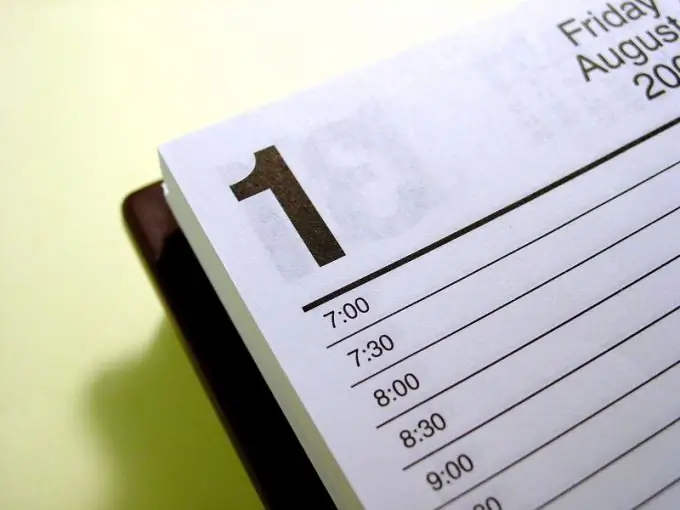The ideal working day schedule is the time that is arranged in such a way that a person has time to do everything that he intended. There are not so many secrets of successful time management, and, first of all, it all depends on who decided to reshape his schedule in favor of achieving a result.

Necessary
Diary, planning and pen
Instructions
Step 1
Where do you start? For the first time, take a time frame in the future for which you will schedule. The best option is a working week, 5 days. First, on a draft, sketch out a list of the main tasks that need to be completed, or at least start doing it in stages.
Step 2
In addition to basic tasks, at work everyone has tasks that are repeated at regular intervals: for example, checking mail and replies to emails, entering documents for signature and in the accounting department, etc. Write them down separately. Surely you already know how long it takes to complete these tasks, and on what days they will be repeated.
Step 3
Open your diary. How, you haven't started it yet? Successful time management is impossible without a lined piece of paper, where blank lines are painted by the hour. It is very convenient and practical, so be sure to get yourself a daily planner or planner. Plannings give you the opportunity to view the whole week on a single sheet - they are narrower, longer and horizontal. True, their big drawback is the small amount of space for recordings.
Step 4
Schedule cyclical tasks. They definitely have their days and times, and the remaining gaps are what needs to be filled.
Step 5
Schedule lunch and smoke breaks (if available at the Company). Now it will be easier to come off in time and go to eat, not forgetting about it.
Step 6
Do you have appointments? Are all participants warned? You can safely schedule the meeting, not forgetting about the road, if the meeting is not in the office. As a rule, with the road it takes at least 2-3 hours.
Step 7
Look, most likely, about half of your time is already occupied. Alas, indeed, routine and dinners take up so much of our working time. It remains to distribute the rest of the important tasks.
Step 8
Set longer and more complex tasks in the morning, you should not put them at the end of the working day, because a certain number of urgent small tasks may come up in a day, and the task will not be completed, or you will have to stay at work longer than usual. Simpler tasks can be set either in the morning, when you are still waking up, or in small intervals, when it will be pointless to start something serious due to the limited segment.






